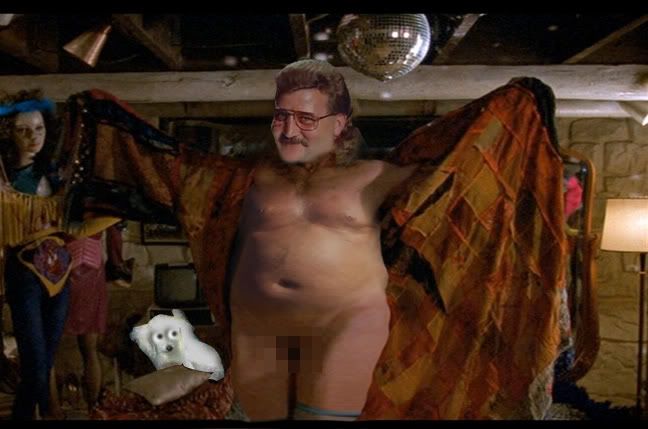A Seattle woman is complaining that she was at the Lake City library with her kids recently, when she saw a man watching hard-core porn on a computer, with the screen facing toward toward the room.
She asked the librarian to move the man to a more discreet location. The librarian refused.
"She could see the screen from the information desk where we were standing and was sympathetic, but said that the library doesn't censor content," said Julie Howe, in an email published Tuesday on the neighborhood blog, Lake City Live.
"And they can't be in the business of monitoring what their patrons are doing at any given computer."
Howe, who was in the DVD section when she saw the man's screen, then asked him to move to another computer. He also refused.
Howe was scheduled to be on KUOW's The Conversation Tuesday at noon to talk about the Jan. 22 incident. She said one of her daughters, who are ages 7 and 10, had seen what the man was watching.
"I have had extensive conversations with the library about this incident, as well as with the police and local representatives," wrote Howe.
"The man's right to access constitutionally protected information is fully protected (which I'm not in argument with), but our right not to be inadvertent viewers is not."
Her complaint was echoed elsewhere. A preschool teacher near the Lake City branch said she doesn't feel safe taking her students to the library. A mother who frequented the Greenwood branch said she once was looking for "puppy books" with her kids, when she saw a man watching "very, very graphic stuff."
"Now I don't let my kids wander the aisles at our branch--so sad," the mother said.
Jessica Christensen also complained after she was standing in the "mystery" section of the Greenwood library with her toddler and saw a man watching porn.
"I agree that if you censor one thing you have the right to then justify censoring other things," Christensen said.
"But what I find ironic is that you can't talk too loudly at the Seattle Public Libraries or you'll be asked to keep it down so as not to distract the other patrons. You know, the patrons viewing pornography."
Andra Addison, spokeswoman for the Seattle Public Library, said the libraries do not filter content on computers, unless the computers are in the kids' section.
"We're a library, so we facilitate access to constitutionally protected information," she said.
"We don't tell people what they can view and check out ... Filters compromise freedom of speech protected by the First Amendment. We're not in the business of censoring information."
She said the library's computer-access policy - filtering computers in the kids' area, allowing regular access in the adults' - has been in effect since 2001.
She also said the library was working with Howe to find ways to resolve the problem. One possible solution was moving things around, so that the DVD collection isn't as close to the computers. But Addision said such moves are difficult for smaller branches.
The libraries receive only a "handful of complaints" about inadvertent viewing of objectionable content a year, she said.
In 2010, the state Supreme Court ruled that public libraries can filter Internet content to block things like porn, after the ACLU had sued a rural library district in the state.
The civil-rights group had said the North Central Regional Library - located in Chelan, Douglas and other counties - had an overly broad Internet filter policy. It wanted filters removed if adults requested it.
But in a 6-to-3 decision, the court said no.
"A public library has traditionally and historically enjoyed broad discretion to select materials to add to its collection of printed materials for its patrons' use," the court wrote.
"We conclude that the same discretion must be afforded a public library to choose what materials from millions of Internet sites it will add to its collection and make available to its patrons."
"A public library has never been required to include all constitutionally protected speech in its collection and has traditionally had the authority, for example, to legitimately decline to include adult-oriented material such as pornography in its collection. This same discretion continues to exist with respect to Internet materials."
 New topic
New topic Printable
Printable
 Report post to moderator
Report post to moderator





